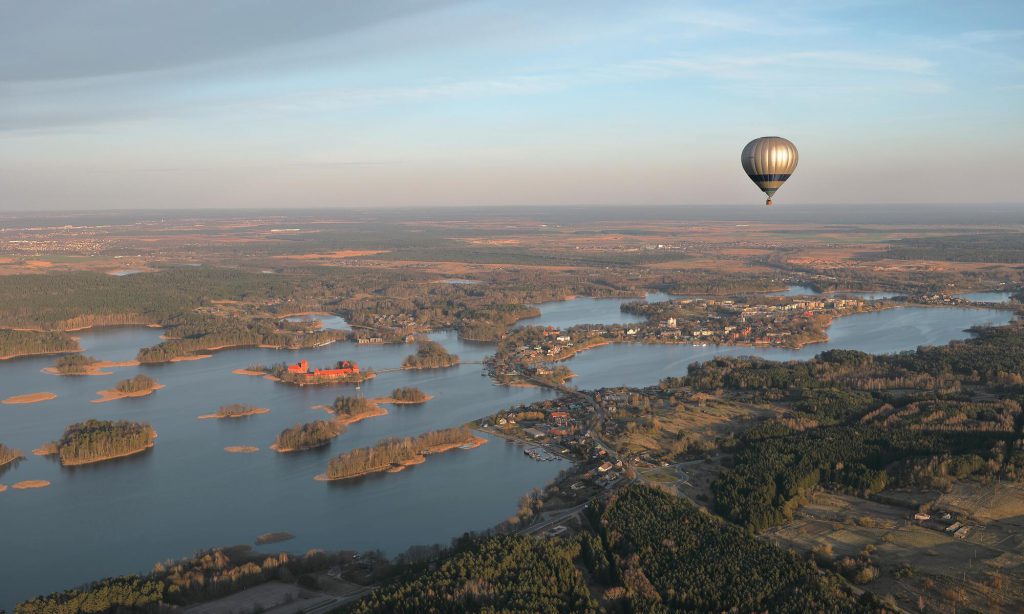Lithuania, in addition to being safe and reasonably priced, has a very high ranking for contented workers and work-life balance, which is especially appealing to expats and foreign nationals considering relocating and working abroad. Fortunately, thanks to the presence of over 150 international firms, it won’t be too difficult to find work with a decent salary regardless of your prior education.
Apart from offering excellent working conditions, Lithuania also has a wonderful way of life. You’ll get a wonderful blend of tradition and modernity in whatever city you choose to call home with its nearly medieval-looking cities and the magic dose that gorgeous nature has scattered here.
Working and living in Lithuania can be the best option if you want to trade your current lifestyle for one with a more international feel, boundless energy, and a rebellious spirit.

Basic Lithuanian information
Listed below are some facts about Lithuania
Weather
Milder, warmer summers and colder winters define Lithuania’s climate. Lows of -4 degrees are expected, with summer temperatures reaching 25 degrees.
Population
Lithuania has a population of about 2.8 million people.
History
After more than 50 years of occupation, the nation that was once a part of the Soviet Union gained independence in 1990.
Did you know
Lithuania has one of the 20 fastest internet connections in the world.
- One of the oldest languages in the world is Lithuanian.
- The Stelmuze, the oldest tree in Europe to have survived the Crusades, is in Lithuania.
- Basketball is the most played sport in Lithuania.
By the end of the 14th century, the Grand Duchy of Lithuania, which also comprised parts of Poland and Russia, Belarus, and Ukraine, was the biggest nation in Europe.
Accommodation in Lithuania
Renting an apartment is the most popular option for foreigners in Lithuania. As in most other countries, living in the capital or larger cities will be more expensive than living in smaller cities or suburbs. In comparison to other EU countries, renting a one-bedroom apartment in the downtown area of a major city may cost between 400 and 500 euros per month. Budget between 600 and 900 euros per month for a larger apartment. A studio apartment in Vilnius, Kaunas, or Klaipeda costs between 200 and 400 euros per month on average.
You could find a roommate with whom you can split expenses if you wish to lower your monthly expenses. Remember that utilities like monthly water and energy fees are typically not included in the rent.
You typically sign a lease for a year when you find an apartment, but in rare circumstances, you can work out a shorter or longer lease with your landlord. It’s also typical to pay a deposit equal to 1-3 months’ worth of rent before moving in, which will be returned when you leave.
Cost of living
Apartments can be found on websites like https://domoplius.lt/en/, on Facebook groups for foreigners residing in Lithuania, or by checking groups specifically designed for apartment searching. Even your new employers, who are more knowledgeable about the housing market in the city, may be able to provide you with some useful information. Or perhaps your firm will provide you with a relocation package that includes an apartment!
In most circumstances, Lithuania will be less expensive to live in than other European nations, although your country of origin will have an impact. A few years ago, Lithuania was named one of the least expensive nations in Europe. Living in or near the capital (Vilnius), as in many other nations, will cost you a little extra money for lodging and food. You can frequently save money on things like rent and groceries if you live in a smaller city.
A restaurant lunch for two will cost approximately 35 euros, a cappuccino will cost approximately 2.20 euros, and an imported lager (0.33 l) will cost approximately 3 euros. Additionally, you can purchase potatoes and rice by the kilo for less than 2 euros as well as one liter of milk for 0.88 euros and a dozen eggs for 1.5 euros when you visit a food market or grocery store.
Traffic and Transportation
As long as your European driver’s license is valid, you are permitted to operate a vehicle in Lithuania. The country has right-hand traffic like the majority of Europe, so if you are an experienced driver, you won’t have any problems forgetting which side of the road to drive on! With its wealth of picturesque lakes, woods, and castles, Lithuania is an enjoyable country to tour on four wheels. The Baltic coast’s dunes are breathtaking! Despite having some of the best roads in Eastern Europe, Lithuanian drivers are occasionally notorious for being a little irresponsible, thus traffic patterns may differ slightly from what you are accustomed to.
